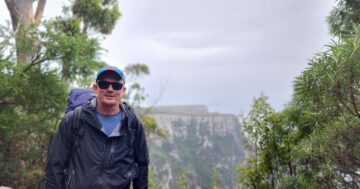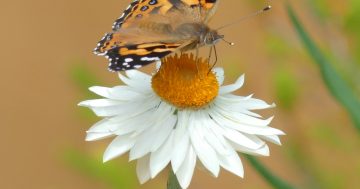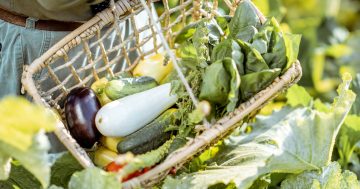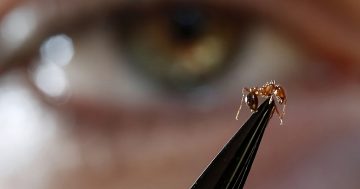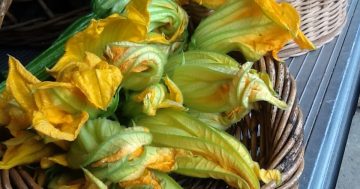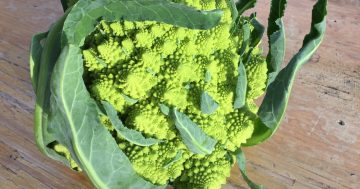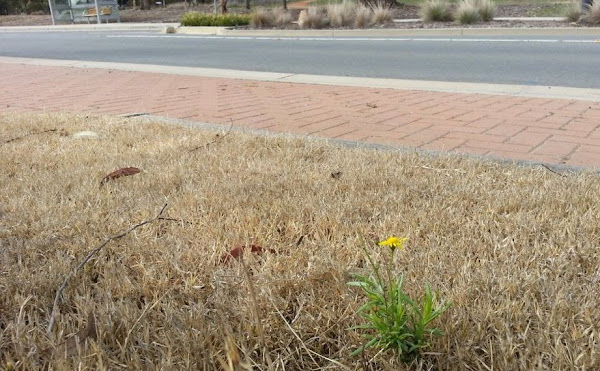
TAMS are warning that the Madagascan Fireweed menace is still merrily bobbing along:
Canberrans are urged to be on the lookout for infestations of Madagascan Fireweed (Senecio madagascariensis) which have been detected in the Gungahlin area.
“Infestations of Fireweed have been detected in large numbers close to the boundaries of Gungahlin Hill, Gungaderra, Mulangarri, Percival Hill, Mulligan’s Flat Nature Reserve and Mitchell Grasslands,” Jane Carder, Manager, Place Management, City Services said today.
“The ACT Government’s weed management staff, along with contractors, have commenced a targeted program to control the weed incursion as quickly as possible.
“The team is working on preventing further spread of the weed by destroying the plant before it flowers and its seeds can spread.
“Fireweed is a small multi-stemmed and vigorous flowering daisy-like plant with numerous bright yellow daisy flowers. Like other daisies, the weed produces fluffy wind borne seeds. Some plants can produce tens of thousands of viable seeds, making it highly invasive.
“A major concern is the toxicity of Fireweed to horses and grazing livestock, which can cause liver damage similar to toxins found in Paterson’s Curse. Fireweed is considered one of the most damaging weeds to grazing land. This weed initially invades land along roadsides and, once established, quickly spreads into neighbouring pastures and reserves.”
Ms Carder said a rapid response to locate and eradicate the weed will save the ACT significant expenditure in future weed control and will ensure continued protection of our valued native plant communities and grazing lands.
“I urge the ACT community to be alert to Fireweed and help us be proactive in managing this invasion of our natural habitat.
“Due to its bright yellow flowers, Fireweed is likely to be noticed by passing motorists.
“If you suspect you have seen Fireweed, please take note of the location and report it to Canberra Connect on 13 22 81. Taking a photo of the suspected plant may also help save time in confirming reports,” Ms Carder said.
For more information about weeds, visit the Weeds of National Significance website at www.weeds.org.au/WoNS/fireweed/












